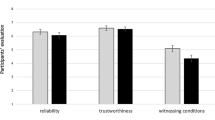Abstract
The role and responsibilities of the expert winness is a controversial subject. This article emphasizes the legal rules (of evidence and procedure) governing the expert and the policy grounds on which they rest. As the law's policies for the use of expertise shift from stage as stage as litigation progresses, or differ between categories of legal cases (criminal vs. civil), or with a party's use of an expert (from being a nonwitness consultant to an expert witness at trial), the law expects the role of the expert to be reshaped accordingly. On some important issues, the law sends contradictory messages: What its formal rules announce is at war with its structure and practices. And these, in turn, sometimes are in tension with the demands of the expert's professional ethical codes. On other matters of importance to experts, the law is silent, because the rules were motivated by a need to control the behavior of parties and lawyers, not experts. The result of all this is to present those who would be conscientious expert witnesses with a need to resolve nearly impossible role conflicts and ethical dilemmas.
Similar content being viewed by others
References
Ager v. Jane C. Stormont Hospital & Training School for Nurses, 622 F. 2d 496 (10th Cir. 1980).
American Academy of Forensic Science (1989). Code of Ethics and Conduct, Article II, AAFS By-Laws. InAAFS Membership Directory (1989).
American Law Institute (1965).Restatement (second) of torts. St. Paul, MN: American Law Institute.
American Psychological Association. (1990). Ethical principles of psychologists (as amended June 2, 1989).American Psychologist, 45, 390–395.
Chesler, M. A., Sanders, J., & Kalmuss, D. S. (1989).Social science in court: Mobilizing experts in the school desegregation cases. Madison: University of Wisconsin Press.
Cleary, E. W. (Ed.). (1984).McCormick on evidence, Third Edition. St. Paul: West.
Day, D. S. (1988). Expert discovery in the eighth circuit: An empirical study.Federal Rules Decisions, 122, 35–61.
Day, D. S. (1987). A judicial perspective on expert discovery under Federal Rule 26(b)(4): An empirical study of trial court judges and a proposed amendment.John Marshall Law Review, 20, 377–414.
Ferguson v. Hubbel, 97 N.Y. 507 (1984).
Friedman, L. M. (1910). Expert testimony, its abuse and reformation.Yale Law Journal 19, 247–257.
Giannelli, P. C. (1989). Evidentiary and procedural rules governing expert testimony.Journal of Forensic Sciences, 34, 730–748.
Graham, M. H. (1977). Discovery of experts under Rule 26(b)(4) of the Federal Rules of Civil Procedure: Part two, An empirical study and a proposal.University of Illinois Law Forum, 1977. 169–220.
Guerrant, G. O., & Hull, C. T. (1977). Drug abuse proficiency testing.Clinical Toxicology, 10, 209–219.
Hans, V. (1989). Expert witnessing. Review of Chesler, M. A., Sanders, J., & Kalmuss, D. S. (1989),Social science in court: Mobilizing experts in the school desegregation cases.Science, 245, 312–313.
Hans, V. & Vidmar, N. (1986).Judging the jury. New York: Plenum.
Herschel, C. (1887). Services of experts in the conduct of judicial inquiries.American Law Review, XXI, 571–577.
Imbler v. Craven, 298 F. Supp. 795 (1969).
Imbler v. Pachtman, 424 U. S. 409 (1976).
In re Imbler, 387 P. 2d 6 (1963).
Joughin, L., & Morgan, E. M. (1976).The legacy of Sacco and Vanzetti. Princeton: Princeton University Press.
Kaye, D. (1989). Personal Communication.
Kline v. State, 444 So.2d 1102 (Fla. Dist. Ct. App. 1984).
La Fave, W. R., & Israel, J. H. (1985).Criminal procedure. St. Paul: West.
Lucas, D. M. (1989). The ethical responsibilities of the forensic scientist: Exploring the limits.Journal of Forensic Sciences, 34, 719–729.
Moenssens, A. A., Inbau, F. E., & Starrs, J. E. (1986).Scientific evidence in criminal cases. Third Edition, Mineola, NY: Foundation Press.
National Society of Professional Engineers (1985). Code of Ethics for Engineers. In R. A. Gorlin (Ed.)Codes of Professional Responsibility. Washington DC: Bureau of National Affairs.
Note (1982). Civil procedure—Ager v. Jane C. Stormont Hospital: Discovery of a nontestifying expert.North Carolina Law Review, 60, 695–705.
People v. Slone. 76 Ca. App.3d 611, 143 Cal.Rptr 61 (1978).
Peterson, J., Fabricant, E., Field, K., & Thornton, J. (1978).Crime laboratory proficiency testing research program. Washington: U.S. Government Printing Office.
Peterson, J. L., & Murdock, J. E. (1989). Forensic science ethics: Developing an integrated system of support and enforcement.Journal of Forensic Sciences, 34, 749–762.
Rice, F. S. (1898). The medical expert as a witness.The Green Bag, 10, 464–467.
Risinger, D. M., Denbeaux, M. P., & Saks, M. J. (1989). Exorcism of ignorance as a proxy for rational knowledge: The case of handwriting identification “expertise”.University of Pennsylvania Law Review, 137, 731–792.
Saks, M. J. (1989a). Legal policy analysis and evaluation.American Psychologist, 44, 1110–1117.
Saks, M. J. (1989b). Prevalence and impact of ethical problems in forensic science.Journal of Forensic Sciences, 34, 772–793.
Saks, M. J.,& Hastie, R. (1978).Social psychology in court. New York: Van Nostrand.
Saks, M. J. & Van Duizend, R. (1983).The use of scientific evidence in litigation. Williamsburg, VA: National Center for State Courts.
Saks, M. J., & Wissler, R. L. (1984). Legal and psychological bases of expert testimony.Behavioral Sciences & the Law, 2, 435–449.
Scheppele, K. L. (1988).Legal secrets: Equality and efficiency in the common law. Chicago: University of Chicago Press.
Sears v. Rutishauser, 466 NE 2d 210 (Ill. 1984).
Starrs, J. E. (1987). Mountebanks among forensic scientists. In: R. Saferstein (Ed.),Forensic science handbook, Vol. II. Englewood Cliffs, NJ: Prentice Hall.
Symposium (1989). Ethical conflicts in the forensic sciences.Journal of Forensic Sciences, 34, 717–793.
Tagatz v. Marquette University, 861 F2d 1040 (1988).
The Tracy Peerage, 10 Clark & F. 154 (1839, 1843).
Thibaut, J., & Walker, L. (1978). A theory of procedure.California Law Review, 66, 541–566.
Author information
Authors and Affiliations
Additional information
American Psychology-Law Society, delivered at the Annual Meeting of the American Psychological Association. New Orleans, August, 1989. That address was titled “Expert Witnesses: Psychology and Beyond”
About this article
Cite this article
Saks, M.J. Expert witnesses, nonexpert witnesses, and nonwitness experts. Law Hum Behav 14, 291–313 (1990). https://doi.org/10.1007/BF01068158
Published:
Issue Date:
DOI: https://doi.org/10.1007/BF01068158




